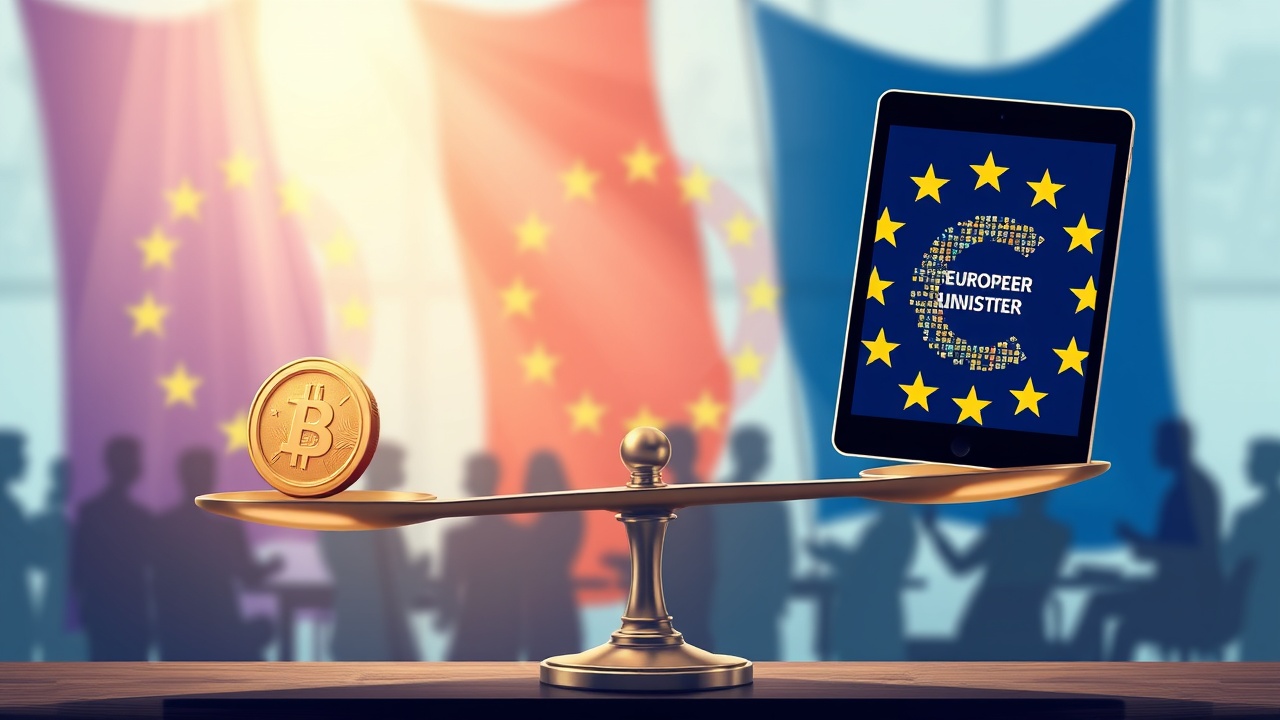EU Finance Ministers Discuss Digital Euro Strategy
The finance ministers from nations within the European Union convened on Friday to outline a strategy aimed at placing restrictions on the maximum amount of digital euros that an individual could possess. This decision is a significant step towards the EU’s ambition to introduce a central bank digital currency (CBDC).
Key Developments from the Eurogroup Meeting
The announcement came during a press conference held by the Eurogroup, following the Economic and Financial Affairs Council meeting in Copenhagen, Denmark.
Officials confirmed they had achieved a common agreement regarding the parameters for setting these holding limits as well as the governance surrounding the issuance of the digital euro. It’s important to note that the discussions centered more on the frameworks for these limits rather than the specific figures themselves.
This development follows calls from cryptocurrency advocacy groups in the UK urging their central bank to abstain from implementing similar constraints on the amounts allowed for stablecoin holdings.
Progress Report and Tensions within the EU
Discussions surrounding the imposition of holding limits were also featured in a progress report released by the European Central Bank (ECB) about the digital euro, dated towards the end of 2024. Reports highlighted that this matter has sparked tensions between the ECB and individual national central banks within the EU.
Commitment to the Digital Euro Project
In line with this initiative, despite a global trend leaning towards stablecoins, the EU remains committed to advancing its digital euro project. Earlier this month, the ECB intensified its efforts to launch the digital currency, facing resistance from some member states concerned about privacy issues and potential repercussions for commercial banks.
ECB board member Piero Cipollone remarked that this system would guarantee that all EU citizens could transact seamlessly with a universally accepted digital payment method, even amid significant disruptions. He emphasized that user privacy would be preserved, asserting that the ECB would not have access to any transaction details, and that the digital euro would function offline comparably to cash in terms of privacy protection.
Strategic Countermeasures Against Cryptocurrency Growth
The ongoing exploration of the digital euro’s implementation has been a priority for EU policymakers, especially in the context of growing regulatory frameworks for stablecoins, influenced partly by previous US administration policies. In late July, ECB adviser Jürgen Schaaf proposed that the digital euro could serve as a strategic countermeasure to the swift proliferation of dollar-pegged stablecoins.
Additionally, former ECB board member and Governor of the Bank of Italy, Fabio Panetta, indicated that the digital euro might play a crucial role in addressing the challenges posed by the escalation of cryptocurrency usage, highlighting that merely instituting rules will not be sufficient to manage the evolution of crypto-assets effectively.




